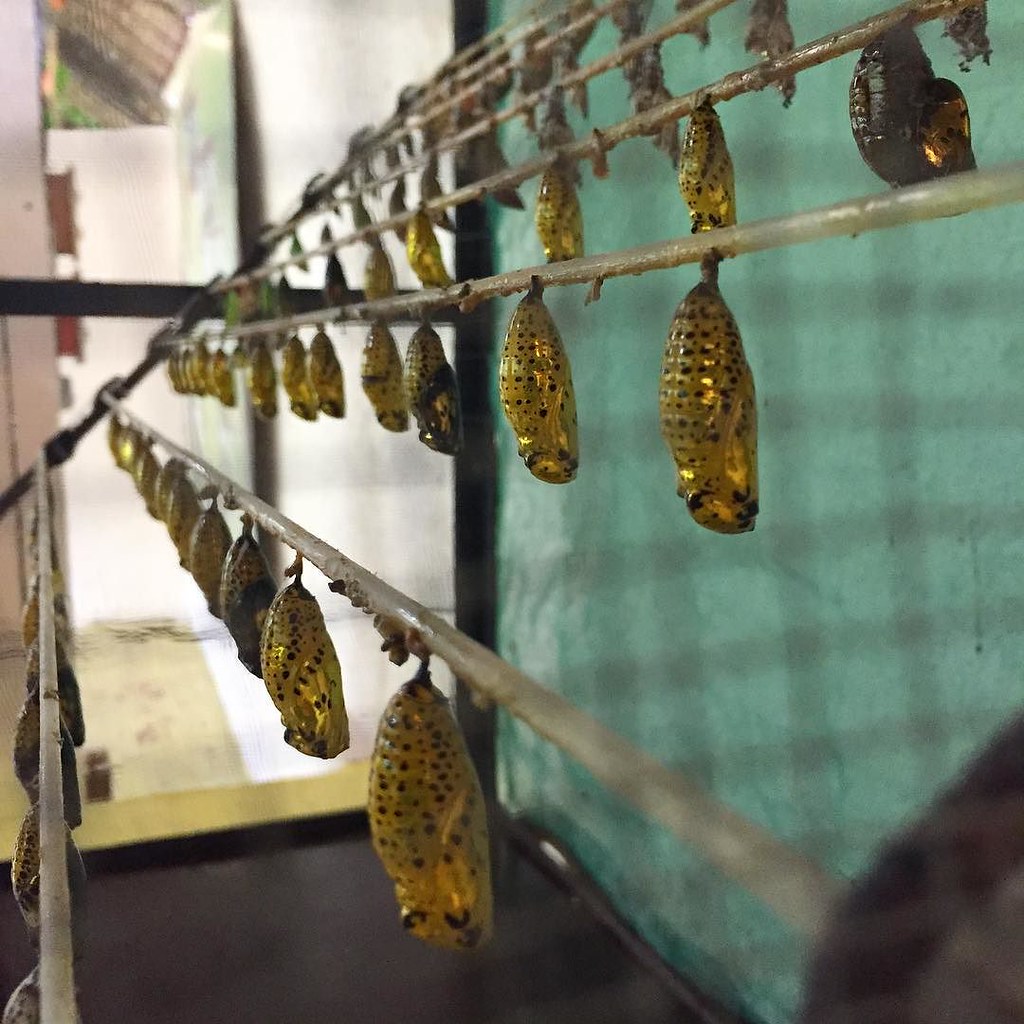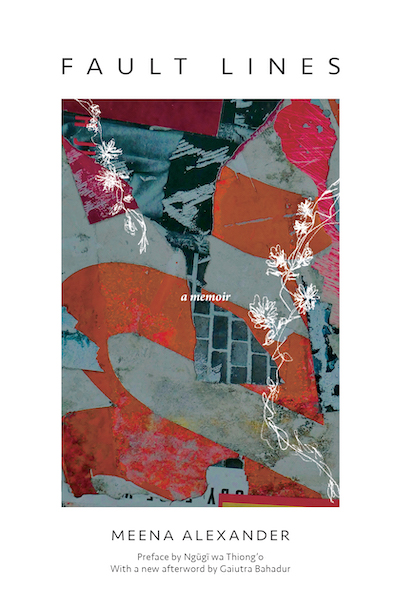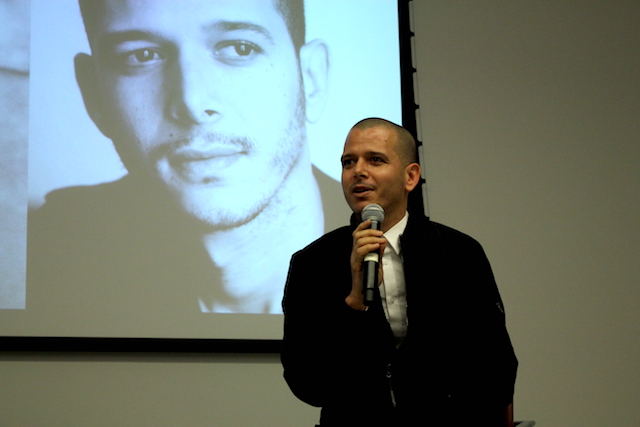What was I when I was not quite in one place, nor in another, just in midstream?

December 8, 2020
Meena Alexander’s Fault Lines, originally published in 1993 and later in a revised edition with a coda in 2003, is a memoir of one writer at home—and in exile—across continents. Today, the Feminist Press releases a new edition of Fault Lines, in commemoration of the two-year-anniversary of Meena Alexander’s passing, with an all-new afterword by Gaiutra Bahadur.
Bahadur writes of Meena Alexander:
Meena’s particular genius, across her many genres—writing theory or poetry, fiction or nonfiction, dream or memory—was to illuminate with a neurasthenic edginess and a mystic density of imagery the connections between colonial oppression and the oppression of women, of migrants, of religious and ethnic minorities. As she writes, “The complexities that underlie female existence need to be set in relation to the constraints of power, both patriarchal and colonial.”8 This intersectionality is, in her words, “part of the challenge of a new praxis, part of the exhilaration of the future.”9 She frames violence as a “second language” that women, through writing, can translate—one that makes visible the “longing for love.”
Bahadur draws connections between Alexander’s work and the history of Indo-Caribbeans:
I was a girl-child who crossed a border too, and for me that girlchild is often also, still, outside myself, pulled from me whole and distinct, almost like progeny who never ages. At six years old, I arrived in New York City from Guyana. I did not cross an ocean, but I am descended from those who did, indentured, taking the place of emancipated slaves on British West Indian plantations. The kala pani (“black water” of the Indian Ocean) figures prominently in the history, the literature, and the memory of Indo- Caribbeans. It’s part of our creation story as a people. For us, the ocean is death and birth intertwined, because our sea voyages were intense scenes of both, as well as of sexual assault.
Toward the end of her moving afterword Bahadur pays homage to the space Meena Alexander has created for other women writers:
The house that Meena envisioned, her house full of women, required no permissions. Yet her entire body of work gives permission. That house is packed with guests, women living and gone, each sworn to the “disclosures that a writing life commits one to” (137).
Below, we share a short excerpt from Meena Alexander’s Fault Lines.
Read a collection of tributes to Meena Alexander (1951-2018) commissioned for The Margins in 2019.
Stone-Eating Girl
When I was seven, my cousin Koshy gave me a pile of Bata shoe boxes. I do not know where he got them from—perhaps the shoe store in Kottayam; or perhaps he had brought them from as far away as Bangalore where he went to boarding school. Koshy’s mother was my appa’s second sister and so we had the Kozencheri house and our Kannadical grandparents in common. Each summer when I returned from Khartoum for my Kerala season, three to six months of each year, Koshy and I would meet. He taught me how to prick holes in the shoe boxes and set sprigs of lily leaf inside. Then he showed me how to cradle the fat pupae he helped me pick off leaf and stone and place them inside the shoe box.
I loved butterflies and even after Koshy returned to Bangalore, I would often spend my afternoons in Kozencheri picking the ugly, shapeless pupae off the leaves of white lilies and sequestering them in the shoe boxes. When the wings seeped out, frail and wet, I would set the creatures free. I stared hard as they rose in the air, trying to fix in my mind the first fluttering motions that held the living creatures vibrating in blue air, in sunlight that bathed the low hills of Kozencheri.
A child of seven, crouched on a rock by the well side, I tried to figure out what it might mean to be a dark incipient thing. Struggling now to recapture what I felt then, I set the imprecision of these words to a child’s fluid thoughts. Did the ugly pupa know it would become a butterfly? Where did the butterfly part exist, when the plump thing clung to a leaf in the darkness of a shoe box? Was there some secret that sustained it? Where did my Khartoum life go when I was in Kozencheri or Tiruvella? And what of this life of rock and stone, under the thick green leaves of Kerala, when I was living in a desert land so far away? Where was I at any one time? What was I?
I was transported from Tiruvella to Khartoum and back again each year. Cupped in the silver capsule of a DC-7 Air India plane, I crossed the rough winds and covered more space than a freed butterfly could. But if the part of me from Tiruvella were not already there, in invisible incipience in Khartoum, how could I be me? What was I when I was not quite in one place, nor in another, just in midstream? Was I like that ugly pupa, unfit to see?
I dropped the thoughts in confusion, picked up a tiny round pebble, wiped it on my sleeve, and set it to my tongue. Then, giving a little gulp, I swallowed hard. Fortunately my guts didn’t hurt. Swallowing that stone gave me a sense of comfort, of power even. I felt I was a child who could accomplish certain feats, sustain something hard and solid inside her. It was a month later that summer, when I went to amma’s house in Tiruvella, that I first saw the stone-eating girl.
She was sitting quietly underneath a tree, in the way that people do, doing nothing much, not fiddling or anything with her sari pallu. An ordinary-looking chit of a thing, one might have said, except for the unnatural pallor of her skin—no, not that prized Kashmiri, film star color, not that. Rather the muddiness of it, as if like a sadhu, she had smeared mud over her flesh.
“Should smear herself in garlic paste, that’s what,” Chinna muttered under her breath, as she caught me staring at the girl.
“So what’s she doing there? Why not sell vegetables or go to school? Showing off, that’s what. And she’ll end up with more than coal dust on her face. See those stones?”
That’s when I got closer, and got a good look. I squatted right in front of her and stared hard. No doubt about it. Her cheeks were filled with something. Not boiled sweets, for she didn’t smell of that rancid taste, nor tamarind balls. She stared right back, and opened her mouth, and rolled one out. It was a pebble all right. I held it in my palm and gazed at it. It was beige but so clear you could see all the veins in it, blue and crimson, tumbling over yet never snarling up, stone skin licked clean with the saliva from the girl’s mouth.
“Theru.”
She wanted it back. That was the only word she ever spoke to me. I put it back in her hand. It looked a bit like mine, her hand. I wanted to look at her more closely, for it struck me that perhaps I could smarten myself up, dress like her. Her sari looked finer than those Dacca cottons amma prized so. By its side, my frock, with the embroidery and special smocking on it, looked quite dull. I felt ashamed of the pink roses, tiny green leaves, knotty stalks, on the fine cotton, stitched in by the nuns in Tholaseri to raise funds for the new orphanage. Then it struck me I should try a few words, or even bolder, put out a hand and touch the girl under the tree.
But Chinna yanked me away, raced me down the dirt road.
“Enough? Enough? Satisfied?” she seemed quite irate.
“What’s her name then?”
“Name? Who can tell. She’s a shameless thing.”
“Shameless? Why?”
“Making an exhibition of herself like that. Mark me now. In a few hours that area around the tree will be filled with youths, drunkards, and not searching for garlic either.” I was dumbstruck, then recovered my wits.
“Your tooth hurts, is that it?”
Chinna nodded and popped a clove out onto her tongue to show me. She had been chewing it hard all the while. Then suddenly she tightened her grip on my elbow and yanked me back. It was just as well, for otherwise we might have been run over by a black Ambassador car.
Inside the black car sat a girl utterly erect. She wore a dark silk blouse and her hair was edged with two silver clips set with pearls in the pattern of jasmine flowers. I knew she had bought them in Kottayam. Now this was Vatsala, a distant cousin. Whenever she visited us, she wore pearls around her neck that clashed with the brocade borders to the elaborate pavade she preferred. Once she had held up the pearls and said in a high pitched voice: “They’re from Tokyo you know.”
I couldn’t bear Vatsala. Her hair was always perfectly in place and the pearls that hung round her neck, brought all the way from Tokyo, had a pale pinkish gleam to them, like the inside of the love apple fruit. She wouldn’t let me touch them, nor would she tell where she had bought her new chappals in rainbow colors that she flaunted so elegantly on her feet. I knew, though, that chappals like those wouldn’t last long on my feet, what with all the outdoor running I did, but it did not prevent me from feeling a sharp pang of envy when I looked at her.
Now there was mud on my skirt and on Chinna’s chatta from that car wheel, and now the tiny malnourished children of the cobbler who lived by the train tracks were forced to crouch in the dirt to avoid the speeding vehicle. When the black car was well out of sight, and we had pulled ourselves forward and moved on to the garlic seller, Chinna, patting down her garments, expressed her approval of Vatsala’s posture: “Such a good girl, now you should be like that, Mol,” but having spoken out in this way, her own skepticism got the better of her thoughts, and she turned back to the stone-eating girl. “She’ll never be a shameless thing like that one out there!” Chinna stabbed her thumb in the direction of the stone-eating girl.
The Malayalam word for shameless that Chinna used was the strong form of the word, the slang, the street use, perachathe, as in shameless-mad, as in mad dog, rabid, bitch, bitches being rabid, rabid dogs being known as bitches. I did not dispute her use, I just took it in. Amma had also used the word, not once, but twice, much to my shock. I wondered how she might have learnt such words from the Misses Nicholson’s school to which she had been sent at an early age. Once amma had pointed at me when she said “shameless” in that way, but I was consoled since it was not quite what she had meant. In other words, it was not that I was shameless, but that, had I persisted in refusing to put oil in my hair and wear my skirts at a decent length so that they covered my kneecaps in the heat of Khartoum, I would become perachathe. It was a word that was to take on more and more importance in my life. At times it has seemed to me that the price for being perachathe—shameless—was to have one’s mouth filled with stones and perhaps the reparation was to perform, in the theater of cruelty that is our lives, all our lives together, choosing stones, filling one’s mouth with them, ejecting them through the miraculous gut we call the imagination.




